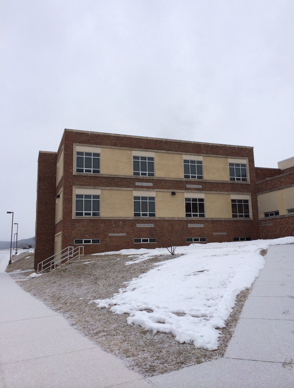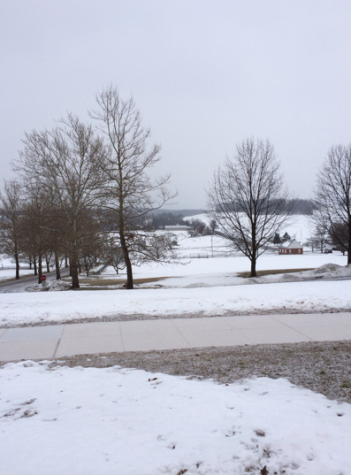Pennsylvania Mandates Curriculum On Snow Days

The Pennsylvania Department of Education has made this school year, 2014-2015, the test year for the FIDs program. Photo courtesy of: www.education.state.pa.us
January 25, 2015
After a snow covered 2013-2014 school year, the Pennsylvania Department of Education has formed a plan to avoid the chaos that follows an excessive winter.
The foundation of the plan is FIDs, Flexible Instructional Days. FIDs require seniors to complete mandatory lesson plans for their four core classes, English Language Arts (ELA), Mathematics, Science, and Social Studies; however, the plans are only necessary if the district exceeds the five snow days that are built in to our school year. Even though teachers may not use FIDs, they are still required to plan a relevant lesson and submit it for approval.

AP English Literature teacher Katharine Wilt has begun the lesson approval process.
“I had to create the lesson plan already, and it was sent to Mr. Molin,” said Wilt. “Then I believe it’s sent over to admin for Dr. Adkins to review to make sure that it meets the requirements of the state, and then we’re a go with it.”
With many districts in Pennsylvania struggling last year to meet the required days without pushing graduation dates back, it was obvious that a solution was needed. With this being the first year of the new method, there are differing opinions on how effective it will be.

Senior Amie Larum doesn’t see how self-taught lessons and at-home activities will recreate a school day.
“I dont think its an effective method to reach students and teach them because I feel like these plans aren’t as strong as the ones we normally have in school, plus you don’t have the teacher there to actually teach you and the students have to do it on their own,” said Larum. “So I don’t think it’s as effective as if you were in a classroom.”
The method presents a lot of obstacles including relying on students’ ability to self-motivate.
Senior Clayton Leasure feels that the most significant obstacle will be trust.
“Getting students to complete the work [will be an obstacle],” said Leasure. “It’s kind of trusting the students to go home and to spend three hour, four hours of their day doing schoolwork on a day when normally no work is required, so it’s going to be difficult getting them to finish their tasks.”
Possibly the only way to ensure students complete their snow day assignments is to provide an incentive, but still there is the conflict with what resources they are allowed to use.

Senior Caraleigh Stifler believes cheating on these assignments will become easier.
“I feel like the kids will find short cuts and kind of rush through it,” said Stifler. “When you have the teacher there, they try to make sure you do everything and learn everything, but when you do stuff online or at home, there are so many ways to cheat and not really learn.”
Not only will students struggle without an authority figure to motivate them, but teachers will also struggle predicting the weather. Without being 100 percent positive of what the weather will be, teachers may have trouble making sure every student has the resources necessary to complete the assignment.
There are several drawbacks to FIDs; however, the benefits are also very obvious, especially to seniors and students in AP courses.
Being an AP teacher, Wilt appreciates the extra time to prepare students.
“[Some benefits are that] the seniors get to graduate when they want to graduate, on time,” said Wilt. “And we don’t lose too many days for the curriculum because planning for the AP test and prepping for it, we need all the days that we can get, so it’s helpful in that way.”
The ultimate goal of FIDs is to recreate the classroom environment at home to ensure that snow days are not days wasted. The PDE has created specific guidelines that each district must abide to; however, each plan is considered individual and will be approved that way.
The Pennsylvania Department of Education stresses that “Regardless of approach, the educational experience must be a natural extension of the classroom learning and be equitable for all participants and populations for the FID program to receive PDE approval.”
For more information about FIDs and the PDE please visit www.education.state.pa.us.



